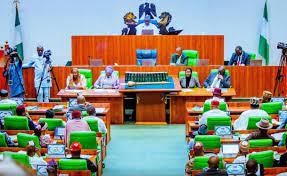
The Manufacturers Association of Nigeria (MAN) has raised concerns about the average maximum lending rate of 35 percent charged by commercial banks on loans to its members in the second quarter (Q2) of 2024.
MAN said the lending rate increased by 6.4 percent in Q2 – up from a 28.6 percent interest rate in Q1.
The association reported the increase in its Q2 ’24 MAN CEO’s Confidence Index (MCCI),’ titled ‘MAN Position on the Incessant Increase in Interest Rate’.
The index compiles the opinions of 400 CEOs of manufacturing firms from each of the six geopolitical zones regarding shifts in the business and employment landscape, productivity levels, and operational environment.
According to the report, the manufacturing sector’s aggregate index score dropped from 53.5 points in Q1 to 51.9 points in Q2.
The research states that during the time under examination, Zenith Bank’s average loan rate to manufacturers was thirty percent, whereas Access Bank and the United Bank for Africa (UBA) gave thirty-two percent.
First Bank of Nigeria (FBN) and Ecobank, according to MAN, lend at an interest rate of 35 percent.
The average maximum loan rate that commercial banks charge on manufacturers’ finances increased to 35% in Q2 2024 from 28.6% in Q1 2024, according to the association, indicating that the productive sector’s financial conditions have become more stringent due to the ongoing hikes in MPR.
“This has not only raised the price of goods but also made the inflationary problem worse and put jobs in the industry in jeopardy.”
MAN also blamed the ‘erroneous disposition’ of the monetary policy committee (MPC) of the Central Bank of Nigeria (CBN) to fight inflation with continual hiking of the monetary policy rate (MPR), which is the benchmark for banks’ interest rates.
At the last MPC meeting, the committee increased the interest rate by 50 basis points from 26.25 percent to 26.75 percent.
According to the manufacturers, prior to the latest hike in the MPR, all five of the leading banks had maximum lending rates that were higher than 30 percent.
MAN also warned that the MPC’s decision would further “escalate the cost of borrowing, limit access to credit, and discourage investment in the manufacturing sector.”
The association, therefore, expressed concern that the capacity of the manufacturing sector to play its strategic role of stimulating economic growth has been further constrained by the increase in interest rates.
MAN said while the devaluation of the naira has more than doubled the value of manufactured exports from N131.15 billion in Q1 of last year to N268.7 billion in Q1 of 2024, the share of manufacturing in non-oil exports has consistently declined from 30.2 percent in Q2 2023 to 15.1 percent in Q1 of 2024 – below the recorded share of 19.8 percent in Q1 2023.
This indicates that Nigerian manufactured exports are becoming less competitive on the international market. The high cost of doing business, particularly the growing cost of borrowing for manufacturing investment, is the cause of this, according to MAN.
MAN asked CBN to veer away from an ongoing increase in MPR and instead prioritize local production while giving the real sector time to recuperate from the effects of earlier hikes.





